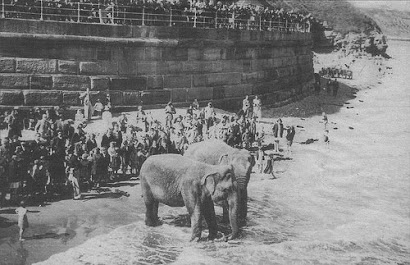 After a classical education at the University of Edinburgh, Lionel Charlton settled in Whitby around the year 1748. He was a lame man with a withered hand, yet these obstacles did not prevent him from setting up a school which was for many years the principal one in Whitby.
After a classical education at the University of Edinburgh, Lionel Charlton settled in Whitby around the year 1748. He was a lame man with a withered hand, yet these obstacles did not prevent him from setting up a school which was for many years the principal one in Whitby.Considered by many a strict schoolmaster, he was nevertheless a man of great integrity and would not accept anything other than his agreed salary from his employers. He was stubborn in attitude and never surrendered his point of view in an argument.
Around 1762 Charlton published a paper claiming that extracting money from the local fishermen in taxes known as tithes was unjust. Dr. Hayter, Bishop of Norwich, was in charge of this process, and he felt this paper reflected badly on his character, especially as Charlton seemingly pulled no punches whilst voicing his opinion of the Bishop.
 |
| The South East Prospect of Whitby Abbey 1773 |
Dr. Hayter threatened to prosecute Charlton unless he retracted his 'obnoxious expressions'. True to his character Charlton refused point blank, immediately putting his career, the safety of his family and his financial security in peril. This incident may well have ruined the dogmatic schoolmaster had the Bishop not died , putting a stop to the prosecution.
Toward the end of his life, after a long acquaintance with the town, Lionel Charlton undertook the writing of his History of Whitby. Having his employer Mr Cholmley's library at his disposal and access to the records of the Abbey, several years were spent in research.
 |
| The title page and the canvas map |
This First Edition contained a canvas fold out map of Whitby which was reprinted by Young in his history of the town in 1817. Charlton's book is not an easy read. It is arranged chronologically, therefore subjects are not gathered together, but occur piecemeal throughout the work. It contains a huge amount of charters and exhibits 'a greater display of laborious research than of solid judgement'.
Many thanks to Mr Stephen Boddy for lending me his precious first edition of this book






















